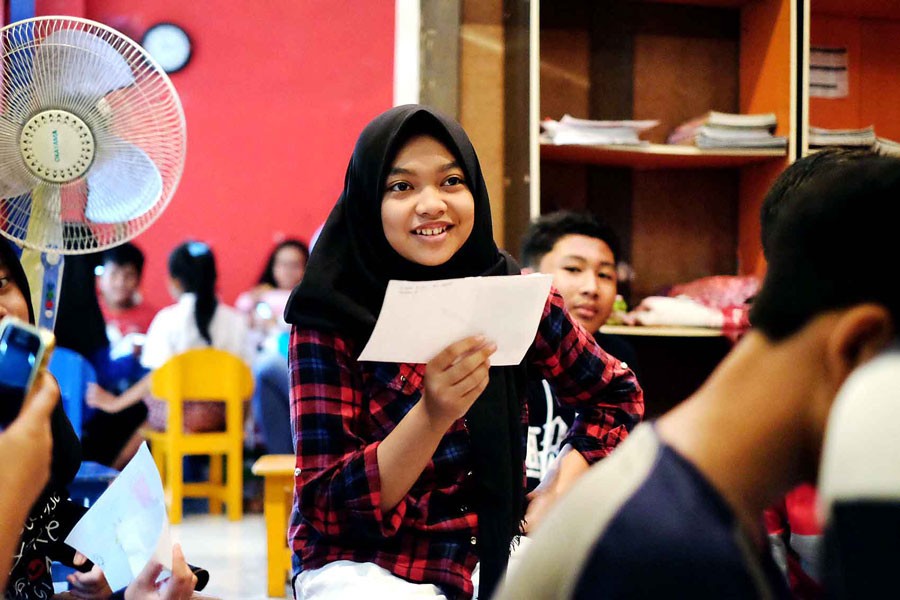Popular Reads
Top Results
Can't find what you're looking for?
View all search resultsPopular Reads
Top Results
Can't find what you're looking for?
View all search resultsQuo vadis, Indonesian literacy?
In terms of reading interest, Indonesia is far behind other countries, as shown in a 2016 report from Central Connecticut State University in the United States that ranks Indonesia 60th out of 61 countries in terms of reading interest -- below Thailand in 59th place and above Botswana in 61st place.
Change text size
Gift Premium Articles
to Anyone
I
n terms of reading interest, Indonesia is far behind other countries, as shown in a 2016 report from Central Connecticut State University in the United States that ranks Indonesia 60th out of 61 countries in terms of reading interest -- below Thailand in 59th place and above Botswana in 61st place.
Many activists, however, are working hard to make things better.
Kiswanti is one of them. The 54-year-old woman has been running a community library named Warabal, short for Warung Baca Lebak Wangi (Lebak Wangi Reading Room) in Parung village in Bogor, West Java.
Hundreds of children and adults flock to her weekly creative classes while others come to the library to read books and periodicals.
"I don't want children who can't afford to go to school to miss out on opportunities, because they can still acquire knowledge by reading books," said Kiswanti, who dropped out of school after finishing sixth grade due to her parents' poverty.
The activities organized at her mobile library include reading poetry books together and encouraging children to write their own poetry.
Similar initiatives encouraging children to think critically are also facilitated by a community called Rumah Cerita (House of Stories). The community has been entrusted by the ASEAN Literary Festival with organizing its National Literary Gymboree aimed at Elementary to Senior High School students.
"We encourage students joining a young journalist workshop to apply critical thinking by interviewing people, probing deeper as well as verifying their answers on the subject of literature," Rumah Cerita founder Aqmarina Andira said.
University of Indonesia (UI) Cultural School linguistics department lecturer Mohammad Umar Muslim, meanwhile, said to instill a love of reading among Indonesians, the curriculum should encourage critical thinking and freedom of thought.
"Unfortunately, people here are afraid to think and express their thoughts freely due to concerns that they will be accused of blasphemy or tarnishing local traditions. In Indonesia, science is not yet value-free," he lamented.
How do we get here? In this edition of the spice trail series, we will examine the evolution of Indonesian literacy and its language as well as factors involved in shaping local people's reading habits.
Sebastian Partogi, The Jakarta Post, Depok, West Java











